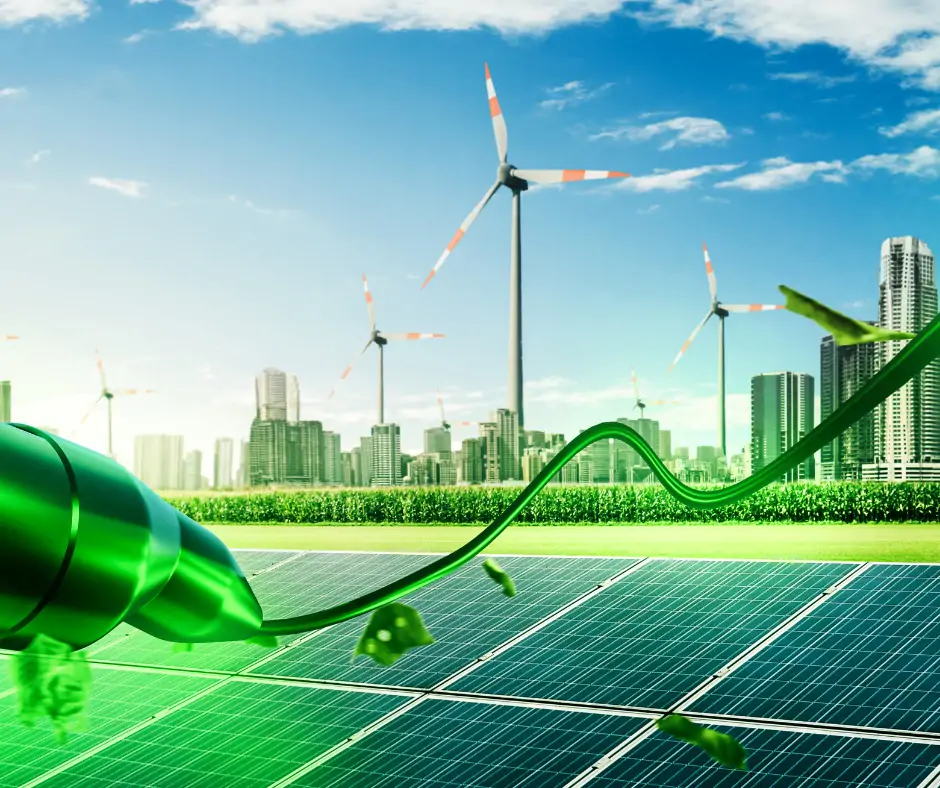
South Africa, a nation endowed with abundant natural resources and immense potential, is witnessing a remarkable transformation in its energy landscape. Amidst economic challenges and the urgent need for sustainable development, the country is embracing renewable energy with unprecedented vigor. This shift towards cleaner, greener energy sources not only promises to address environmental concerns but also offers a beacon of hope for economic revitalization and social progress.
At the heart of this transformation lies the Renewable Energy Independent Power Producer Procurement Program (REIPPPP), a pioneering initiative launched by the South African government to stimulate private investment in renewable energy projects. Since its inception, the program has attracted significant interest from local and international investors, paving the way for the rapid expansion of renewable energy capacity across the country.
One of the key driving forces behind South Africa’s renewable energy boom is its abundant solar resources. With an average of more than 2,500 hours of sunshine per year, the country boasts ideal conditions for solar power generation. Solar photovoltaic (PV) installations have proliferated across South Africa, from vast utility-scale solar farms in the Northern Cape to rooftop solar panels adorning homes and businesses in urban centers like Johannesburg and Cape Town.
In addition to solar power, South Africa is also harnessing its wind energy potential. The country’s long coastline and expansive inland areas offer ample opportunities for wind farm development. Projects such as the Jeffreys Bay Wind Farm and the Cookhouse Wind Farm have demonstrated the viability of wind energy as a reliable and cost-effective source of electricity.
Hydropower is another promising renewable energy source in South Africa, with the potential to contribute significantly to the country’s energy mix. While large-scale hydroelectric projects are limited, small-scale hydro installations are gaining momentum, particularly in rural areas where access to electricity remains a challenge.
Beyond the environmental benefits, the transition to renewable energy holds immense economic promise for South Africa. The renewable energy sector has emerged as a major driver of investment, job creation, and economic growth. According to the International Renewable Energy Agency (IRENA), every megawatt of renewable energy capacity installed creates a substantial number of direct and indirect jobs, ranging from project development and construction to operations and maintenance.
Furthermore, the localization requirements embedded within the REIPPPP have spurred the growth of domestic industries related to renewable energy, such as manufacturing of solar panels, wind turbines, and other components. This has not only reduced dependence on imported technologies but has also stimulated the growth of local supply chains, fostering entrepreneurship and industrial development.
The benefits of renewable energy extend beyond the economic realm, offering tangible social advantages as well. Access to clean and affordable energy is a fundamental human right, yet millions of South Africans still lack reliable electricity supply, particularly in rural and underserved areas. By decentralizing power generation and promoting distributed energy solutions, renewable energy projects have the potential to bring electricity to remote communities, empowering them with opportunities for education, healthcare, and economic advancement.
However, despite the progress made in renewable energy deployment, South Africa faces a myriad of challenges that threaten to impede further growth. Chief among these challenges is the need to ensure grid stability and reliability in the face of intermittent renewable energy sources such as solar and wind. Integrating variable renewables into the national grid requires significant investments in grid infrastructure, energy storage, and advanced grid management technologies.
Another critical issue is the imperative to address socio-economic disparities and promote inclusive development in the renewable energy sector. Historically marginalized communities, including black South Africans and women, have often been excluded from the benefits of renewable energy projects. To realize the full potential of renewable energy as a catalyst for social transformation, it is essential to prioritize equity, diversity, and inclusion in project planning, implementation, and decision-making processes.
Moreover, South Africa must navigate the complex interplay between renewable energy and traditional fossil fuel industries, which continue to play a dominant role in the country’s energy mix. While renewable energy offers a path towards decarbonization and climate resilience, it also poses challenges for sectors reliant on coal and other fossil fuels. A just transition strategy is imperative to ensure that workers and communities dependent on fossil fuel industries are not left behind in the shift towards a low-carbon economy.
In conclusion, South Africa stands at a critical juncture in its energy transition journey. The rapid expansion of renewable energy offers a beacon of hope amidst economic challenges, environmental concerns, and social inequalities. By embracing renewable energy as a cornerstone of its development agenda, South Africa has the opportunity to not only mitigate climate change and safeguard its natural heritage but also to foster inclusive growth, create jobs, and improve the quality of life for all its citizens.
This website uses cookies.